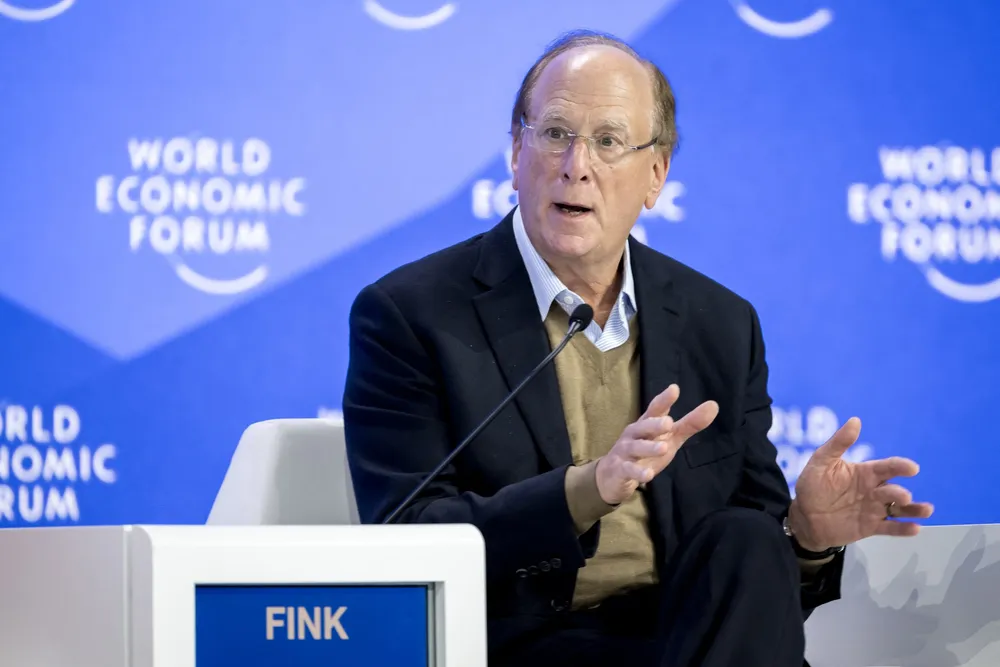BlackRock CEO Fink cites 'energy pragmatism' as green agenda faces pressure
Finance giant is singing a changed song as Republican states do less business

BlackRock CEO Larry Fink in his annual letter to shareholders said the US and Europe need “energy pragmatism” to meet rising global demand, which will require a balance of renewables and hydrocarbons for several decades to come.
“Energy pragmatism starts with fixing the slow, broken permitting processes in the US and Europe. But it also means being clear-eyed about our energy mix,” Fink wrote in the 2025 letter issued this week, noting it usually takes longer to permit energy infrastructure projects than to construct them.
“Without massive investments in energy generation and transmission – and the electricians and engineers to build them – we’re going to face an unacceptable tradeoff: Who gets the electricity – people or machines?” he continued. “And a society that chooses to cool its servers while its citizens swelter – or freeze – has fundamentally misplaced its priorities.”
Global electricity demand is surging, driven in part by the rise of artificial intelligence (AI). A single data center can draw 1GW of electricity. That’s enough to power the entire city of Honolulu on the hottest day of the year.
In several US states, utilities have already warned that AI-driven electricity demand will push their grids past capacity, according to BlackRock, with even Silicon Valley Power, a municipal utility serving the technology hub of Santa Clara, having stopped accepting new data centre requests.
Fink wrote that most new infrastructure investments have been flowing into renewables. Yet, without major breakthroughs in storage, wind and solar “can’t reliably keep the lights on.”
He added: “In the near term, more than half the electricity powering data centres must come from dispatchable sources. Otherwise, the air conditioning will shut off, the servers will overheat, and the data centres will shut down.”
Since 2019, wind and solar power have accounted for more than 70% growth in the global energy market. Yet, this rapid growth is off a low base.
According to BlackRock, while renewables have helped to meet overall energy demand growth, “they have not yet cut into the existing demand for hydrocarbons at the global level.”
BlackRock contends that the global energy landscape has changed dramatically since Russia’s invasion of Ukraine in 2022.
The resulting market dislocation is accelerating adoption of an approach – energy pragmatism – to balancing the goals of energy security, reliability, affordability and decarbonisation.
Until last year, Fink had been a leading voice on Wall Street that rising energy prices were accelerating the transition from fossil fuels, while leveraging BlackRock’s influence as the world’s largest asset manager to press companies to give climate a greater role in their investments.
His advocacy for investment funds to factor in environmental, social and governance (ESG) aspects was slammed as “woke capitalism” by conservatives including some top elected officials in Republican states such as Texas, which is among those that reduced levels of business with the company.
BlackRock has since stepped efforts to improve ties with Republican leaders nationwide. That effort took on greater urgency after President Donald Trump’s election last November. ESG and climate more broadly have become politically toxic for corporate leaders anxious to stay in his good graces.
In his 2024 letter, Fink said BlackRock’s clients choose their own investment objectives, including mandates to invest in oil and gas, or lower-carbon sources of energy – both, or neither.
Fink continues to believe climate-change is a generational challenge and combating it will require trillions of dollars investment. BlackRock is a major global investor in energy transition infrastructure projects such as wind, battery storage, and solar generation, as well as those for natural gas.